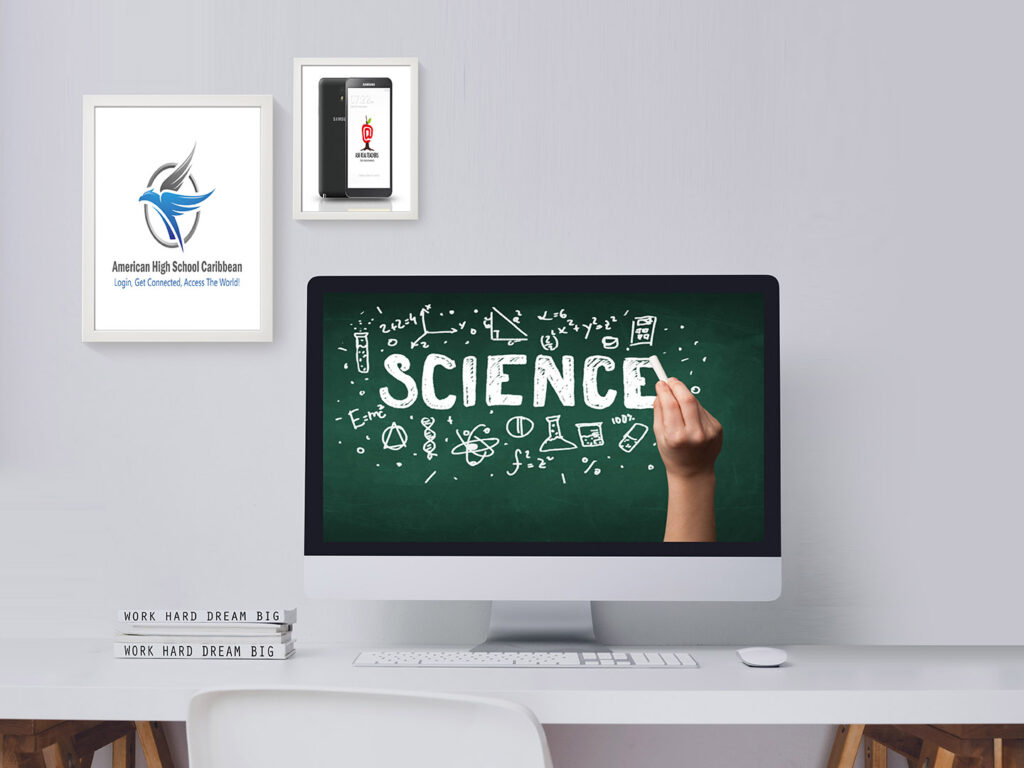2021 - 2022 Bahamas Virtual School Course List

Middle School Science
Grade 7 General Science
Grade 7 introduces students to the fundamentals of scientific inquiry and observation. The scientific method, properties of matter, living organisms, the human body, and the environment. Students conduct experiments and explore scientific principles. Emphasis is placed on developing critical thinking, the natural world, and the ability to record and interpret scientific data.
Grade 8 General Science
Grade 8 explores more complex scientific concepts in life science, physical science, and earth science. Key topics include cells and reproduction, energy and forces, ecosystems, and the water cycle. The course enhances students’ experimental skills, fosters logical analysis, and emphasizes the application of science to real-world issues, including pollution, health, and conservation.
Grade 9 General Science
Grade 9 serves as a transition to more specialized science courses by integrating concepts from biology, chemistry, and physics. Topics include atomic structure, chemical reactions, energy forms, body systems, and weather and climate. The course prepares students for senior-level science subjects and national examinations.
High School Science
Biology
Grade 10 introduces students to the study of life through a foundational exploration of cell biology, classification of living organisms, nutrition, respiration, and the basic systems of the human body.
Grade 11, students deepen their understanding of human and plant physiology, genetics, and ecological systems. Students engage in laboratory investigations and data interpretation to build critical thinking skills and reinforce scientific concepts in preparation for BGCSE-level assessments.
Grade 12 focuses on advanced topics including evolution, reproduction, biotechnology, immunity, and environmental conservation. This final year of study prepares students for post-secondary education in biology-related fields and the BGCSE examination.
Chemistry
Grade 10 lays the foundation for scientific understanding of matter and its interactions.
Grade 11, students expand their knowledge with a focus on chemical equations, mole concepts, stoichiometry, and solution chemistry. They explore acids, bases, salts, titration, and solubility through laboratory investigations. Key areas include the classification of oxides, reactions of acids and bases, and oxidation-reduction processes.
Grade 12 provides advanced instruction in thermodynamics, electrochemistry, reaction rates, chemical equilibrium, and organic and inorganic chemistry. Students study the energy changes in reactions, the electrochemical series, industrial processes (e.g., the Haber-Bosch process), and environmental issues, including pollution.
Physics
Grade 10 introduces students to fundamental physical concepts that describe motion and the properties of matter. Core topics include measurement and units, motion, forces, energy, and simple machines.
Grade 11 explores the principles of work, power, pressure, waves, and heat. This year serves as a critical bridge toward BGCSE Physics exam preparation.
Grade 12 covers advanced topics including electricity and magnetism, nuclear physics, electronics, and radioactivity. Students refine their analytical and practical skills through investigative labs and in-depth theoretical analysis. Emphasis is placed on applying physics concepts to modern technologies and societal issues. The course prepares students for the BGCSE.